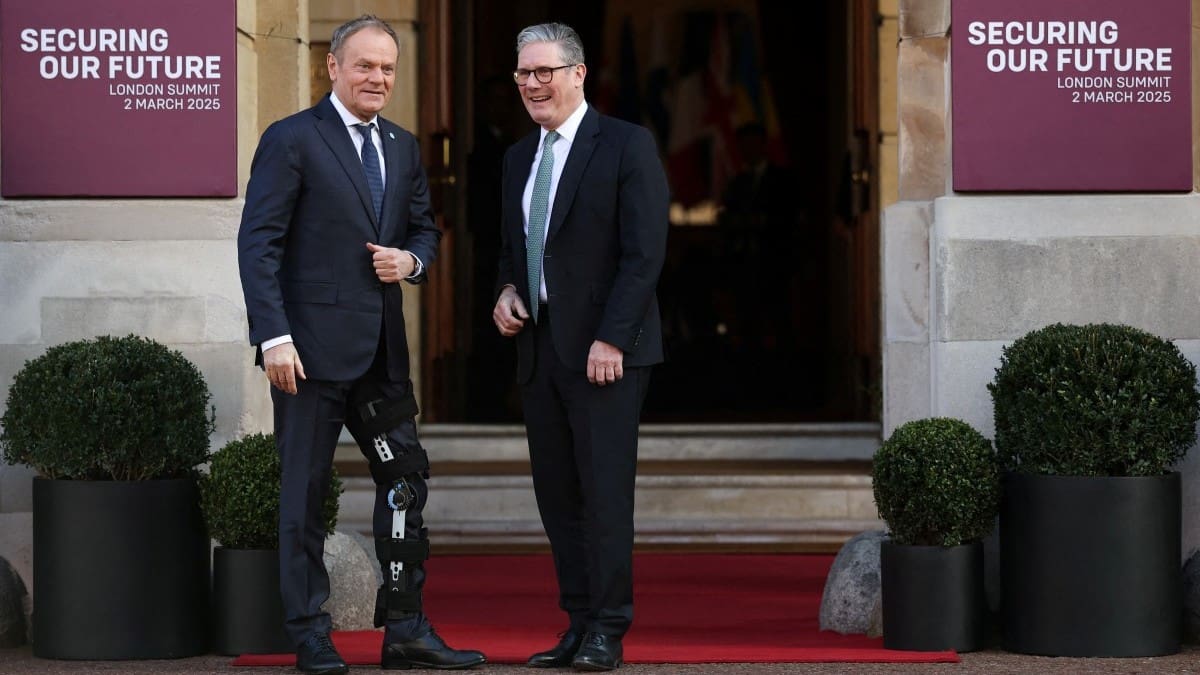
Polish PM Donald Tusk (L) and UK PM Keir Starmer on March 2, 2025 in London.
Photo: Toby Melville / AFP
European finance ministers are set to discuss a new proposal this week to establish another common defense fund, on top of the EU’s existing €150 billion joint loan program.
The idea is based on a recent report by the think tank Bruegel, commissioned by the EU Council’s Polish presidency. It will be presented during the ministers’ informal meeting in Warsaw on April 11th, to which the UK, Norway, and Switzerland are also invited.
The proposal echoes earlier calls from the UK for an intergovernmental agreement on joint defense procurement without Brussels’ oversight. Non-EU countries will be able to participate in the EU’s €150 billion SAFE program, but they will have to sign a bilateral defense agreement with the EU. Given that many British voters would see this as a betrayal of Brexit, the UK’s Labour government may prefer this alternative course.
The proposed European Defense Mechanism (EDM) would operate independently from the EU, and membership would be fully voluntary, with only a select number of EU, European Economic Area (EEA), and European Free Trade Association (EFTA) countries expected to join.
The goal is to streamline arms procurement by jointly negotiating reduced costs, and then offering interest-free loans to front-line countries, like Poland and the Baltic States, using the funds saved.
A portion of the procured equipment would be centrally owned by the EDM, sparing national budgets and helping countries stay within the EU’s newly relaxed fiscal rules.
According to Guntram Wolff, co-author of the Bruegel report,
The key advantage comes from bringing down the costs through joint procurement. The second advantage is the ownership … if the EDM owns the asset, then it’s off the balance sheets of the member states.
Membership contributions would follow a “subscription” model based on each country’s economy or defense spending, and decision-making would be either through a qualified majority or based on the number of “shares” countries own from the common assets.
Bruegel also proposed allowing the European Commission to become one of the “shareholders,” but giving a seat at the table to Brussels will likely be turned down by the UK and maybe even by bigger EU member states, like Germany, who want to move quicker than the sluggish pace of EU bureaucracy.
Along with Poland, the Nordic and Baltic countries also support the plan. Whether there is a broader appetite in the EU for an additional mechanism in parallel to Brussels’ joint defense loans remains to be seen.
